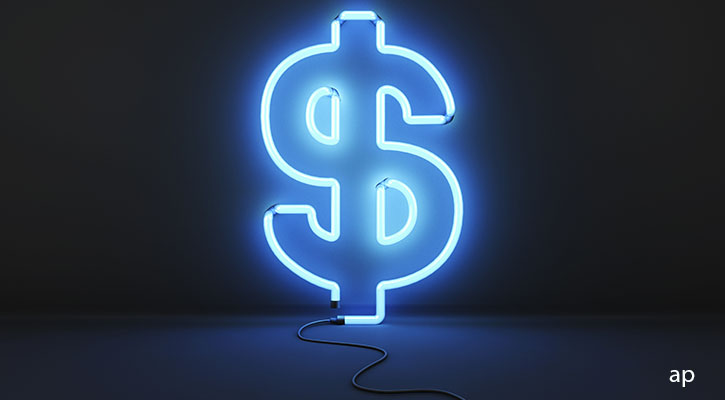
Worsening macroeconomic conditions and an ongoing political backlash to the sustainability agenda in the US continued to weigh on environmental, social and governance (ESG) strategies in the second quarter of 2023, Morningstar analysts report today.
In the second quarter of 2023, global sustainable funds attracted $18 billion (£14 billion) of net new money, a significant reduction on the $31 billion attracted in the quarter prior.
This reduction in flows was mirrored by a reduction in performance.
"This inflow was lower than the revised $31 billion in the first quarter, against a continuously challenging backdrop of high inflation, rising interest rates, and uncertainty about the pace of the global economy," Morningstar analysts said.
"The decrease was mirrored by a reduced quarterly organic growth rate. Calculated as net flows relative to total assets at the start of a period, global sustainable funds saw their organic growth rate decline to 0.7%, from the restated 1.2% in the previous quarter."
This is, however, still better than the overall global fund universe, which returned to outflows of over $37 billion in the second quarter amid continued challenging macro conditions. These redemptions contrast with the uptick in flows of $77 billion in the first quarter.
Globally, Europe maintained its position as a leader in sustainable fund flows, attracting $20 billion of net new money, but that was tempered by significant outflows in the US, Australia and New Zealand, and Japan, which witnessed outflows of $600 million, $1.7 billion, and $1.9 billion, respectively.
In Japan the numbers were particularly dramatic, spiralling from the $961 million outflows registered in the first quarter of 2023. In the US, meanwhile, the ongoing "culture war" political backlash against ESG is partly to blame.
"Investors pulled $635 million from sustainable funds in the second quarter, easing slightly from $5 billion-plus losses in the two previous quarters but marking the third-consecutive quarter of outflows nonetheless," the report says.
"In total, investors have withdrawn $11.4 billion from these funds over the past year. […] Another possible factor continuing to weigh on investor demand for ESG products is the political backlash against sustainable investing in the US."
ESG product development also continues to slow, a trend driven in large part by the ongoing impact of the European Union’s sustainable finance directive (of which more below). New sustainable fund launches in Europe in the second quarter of 2023 slumped by almost 28%.
By contrast, and despite political headwinds, product development in the US continued its momentum, while launches in the rest of the world were a decidedly mixed picture.
"An estimated 106 new sustainable funds hit the shelves globally in the second quarter, a continuation of the slowdown in product development activity since the beginning of 2022," Morningstar analysts said.
"However, this number will likely be restated upward in our next report as we identify more launches and as additional ones are reported to Morningstar.
"The cooldown in new sustainable product development was entirely driven by a significant reduction of new sustainable fund launches in Europe, which slumped by almost 28%. In contrast, product development in the US continued its momentum, and the rest of the world was mixed."
A Wave of Firsts
In a separate paper released on 31 July, Morningstar data shows the outflow breakdown by Article 8 and 9 funds, classified as part of the EU's Sustainable Finance Disclosure Regulation, or SFDR.
In the second quarter of 2023, Article 8 funds suffered net outflows of €14.6 billion (£12.5 billion). Such outflows "disproportionately affected" Article 8 funds with no commitment to sustainable investments, Morningstar analysts said.
Investors continued to pour net new money into Article 9 funds, totalling €3.6 billion. This was, however, the lowest inflow on record for such products. And speaking of firsts, assets in Article 8 and Article 9 funds rose by 1.4% over the second quarter, passing the €5 trillion mark for the first time ever.
Amid what has been recently described as a tidal wave of fund reclassifications, the pace of change is now slowing dramatically. About 180 funds upgraded to Article 8 from Article 6, while only six downgraded to Article 8 from Article 9. Notably, seven Handelsbanken Paris-aligned index funds, which were previously downgraded to Article 8 from Article 9, reverted to Article 9.




























